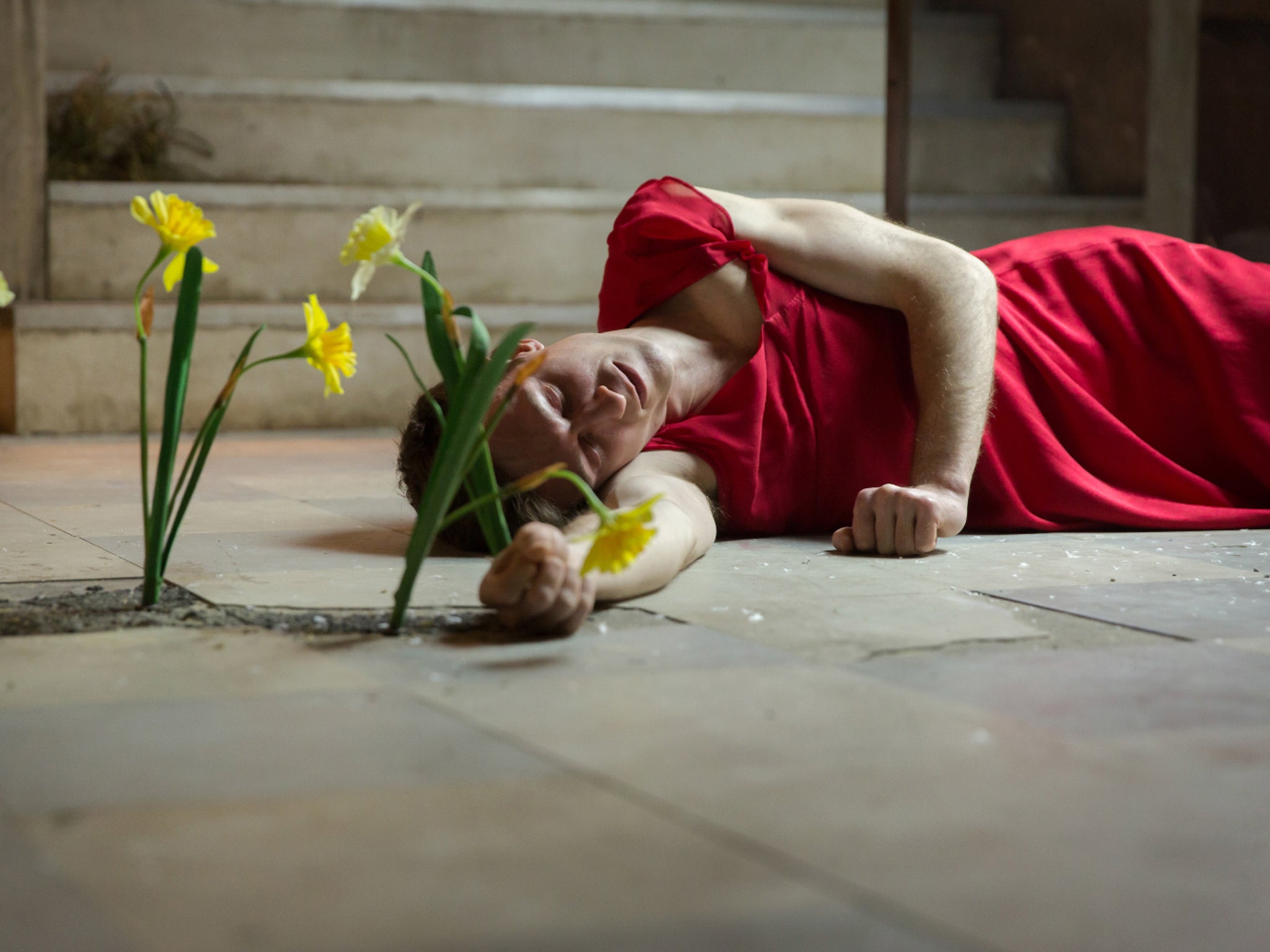Cleansed, The Dorfman, National Theatre, review: Gore-fest staged with upsetting realism
Sarah Kane's 1998 play is a difficult watch that suggests love is most powerful weapon of torture there is

Your support helps us to tell the story
From reproductive rights to climate change to Big Tech, The Independent is on the ground when the story is developing. Whether it's investigating the financials of Elon Musk's pro-Trump PAC or producing our latest documentary, 'The A Word', which shines a light on the American women fighting for reproductive rights, we know how important it is to parse out the facts from the messaging.
At such a critical moment in US history, we need reporters on the ground. Your donation allows us to keep sending journalists to speak to both sides of the story.
The Independent is trusted by Americans across the entire political spectrum. And unlike many other quality news outlets, we choose not to lock Americans out of our reporting and analysis with paywalls. We believe quality journalism should be available to everyone, paid for by those who can afford it.
Your support makes all the difference.Astonishingly, this is the first Sarah Kane play to be staged at the National Theatre. In all honesty, I find it hard to mind that Cleansed isn’t more often revived.
It’s set in some kind of correctional facility for ‘degenerates’: an incestuous sister and brother; a homosexual couple. The Tinker, a ‘doctor’, carries out stomach-churning treatments/tortures that break bodies and crush love. Even his own moment of softness with a stripper ends violently.
Kane’s 1998 play is a very difficult watch. There are rapes, mutilations, and humiliating torments. Interestingly, Katie Mitchell stages this gore-fest with upsetting realism, despite the play’s own rejection of the naturalistic. There have been fainters; I felt literally nauseous afterwards. But it’s not mere shock-horror: Kane’s disquieting experiments with non-linear form have lost none of their nightmarish, precision-cut yet confounding intensity.
Kane was inspired by Roland Barthes’ phrase: "being in love was like being in Auschwitz", and Cleansed seems to suggest that love is the most powerful weapon of torture there is.
While there are moments of true human tenderness, it is such love that makes agonising pain… even worse. We see intimacy being betrayed under threat-of-death, then that betrayal being played back to the lover. Even a lover’s apparent self-sacrifice becomes a punishment for the one left behind; “I’d die for you” is not romantic when it’s a final nail of psychological torture.
Such sophisticated acts of sadism, which play off our deep love for another against our animal desire to save ourselves, dig into our worst fears. George Orwell knew that; it’s why 1984 remains so potent, and Cleansed riffs on it.
The set is a dilapidated old building; a madhouse of medieval tortures, with hospital trolleys and latex gloves. Still, such surrounding scruffiness suggests rogue element rather than state sanctioned surveillance. Mitchell’s production is swathed in ominous noise, metallic clunks, a pulsating like blood in your ears before you faint (or was that just me?) The sound of bombs and planes intrude later - a nod, surely, to an outside world of omnipresent, global violence.
Mitchell realises, and embellishes, Kane’s symbolism. Slow-moving funerals of men in black balaclavas, clutching umbrellas, have a treacly surrealism. The mechanised movements of a stripper’s dance telegraph how women may be reduced to sexual vending machines. Flowers prod up through the floor, almost too innocent a representation of the blossoming of love.
Performances are across-the-board excellent, which mostly means good at conveying extreme pain. Tom Mothersdale as the Tinker is sinister yet insouciant; Michelle Terry as the body-dysmorphic sister Grace gives a bare-all performance that sees her howl, judder and splutter. It is Grace’s play in Mitchell’s interpretation: she sees all, bearing witness to atrocities beyond her own.
Kane marries the darkest imaginings of our subconscious minds with a reminder that such unwatchable acts are really happening somewhere in the world right now. Yet I wasn’t convinced the play quite earns its violent extremes. I’ve rarely been so overwhelmed by a show, but I’ve also never longed so much for one to end.
Join our commenting forum
Join thought-provoking conversations, follow other Independent readers and see their replies
Comments